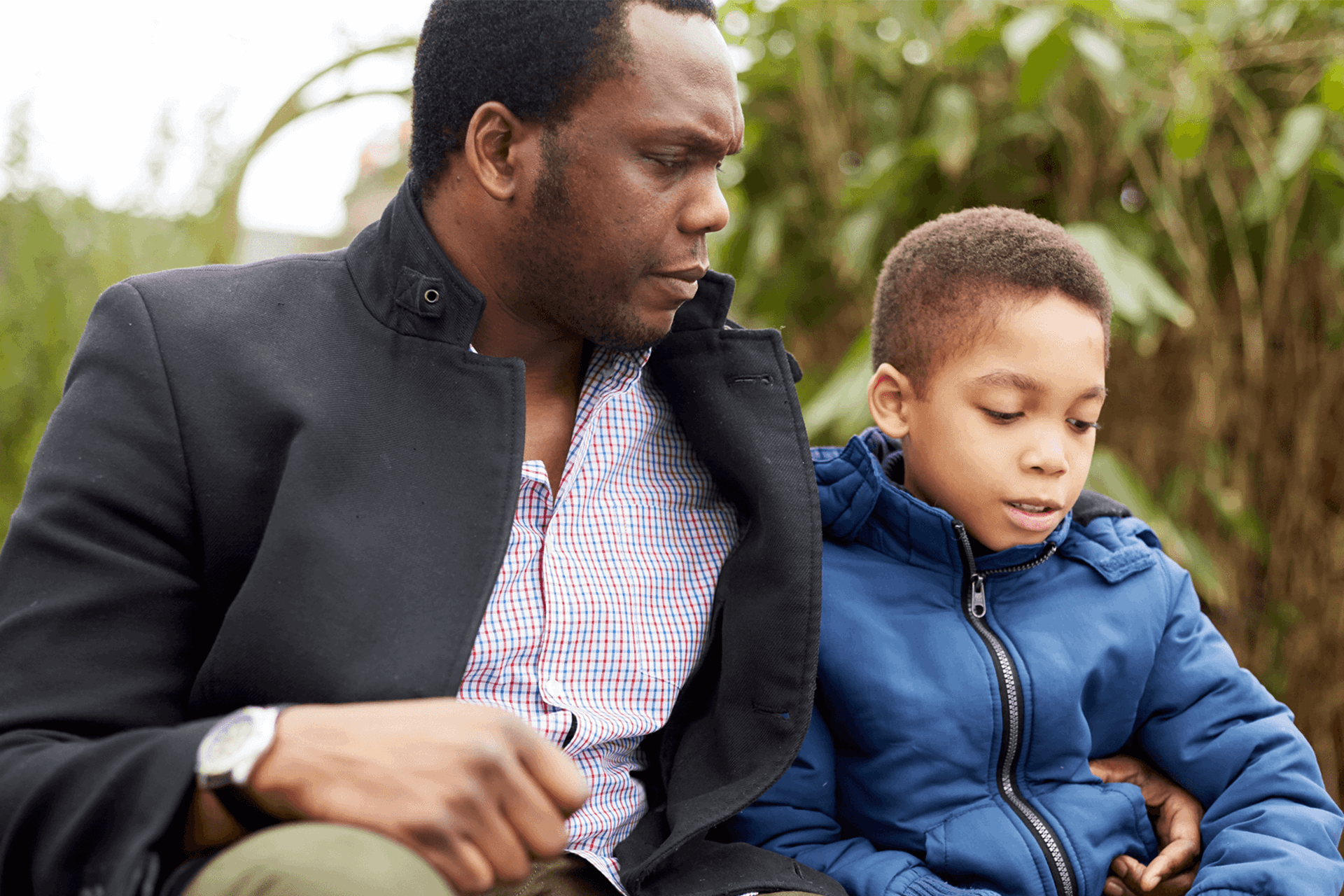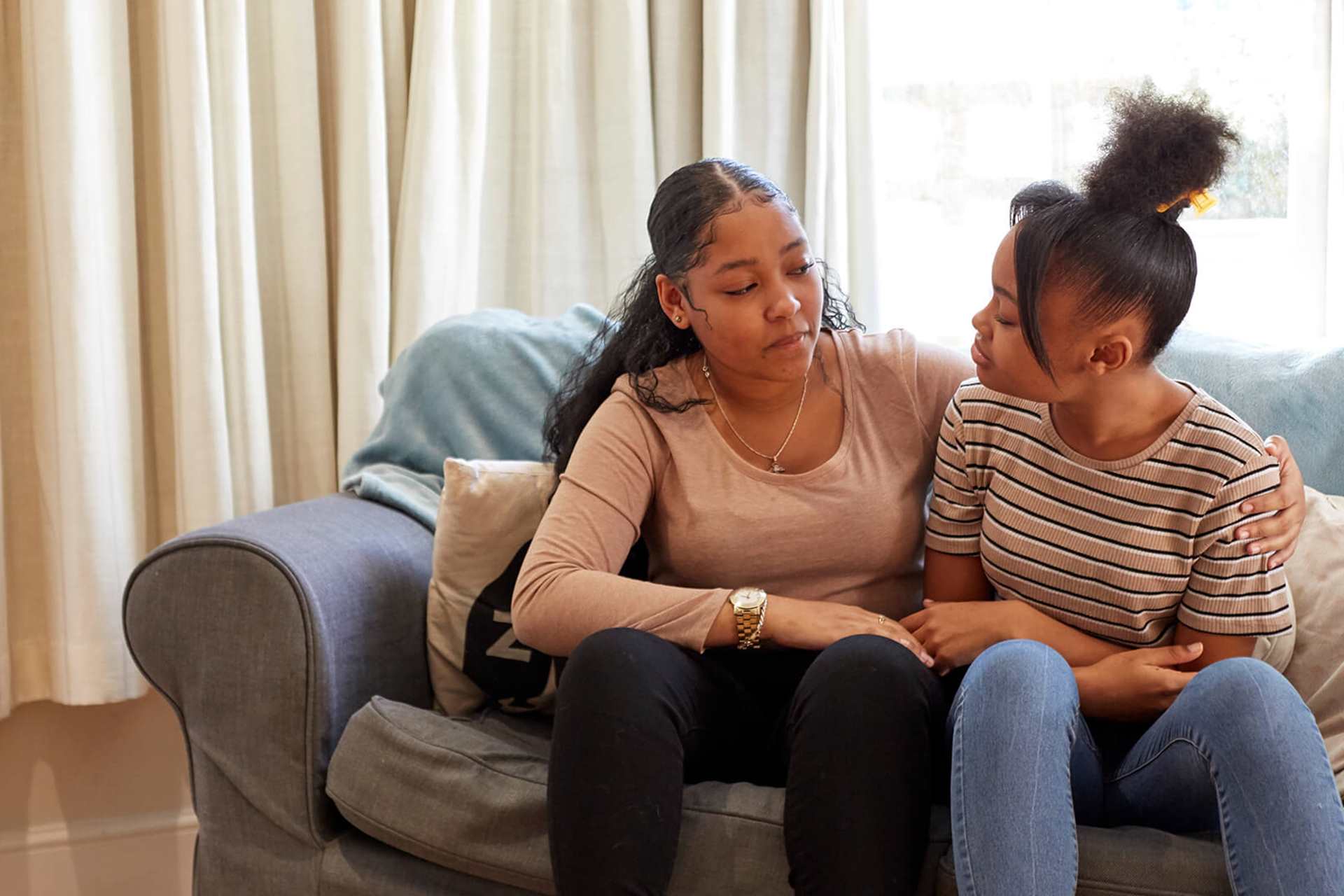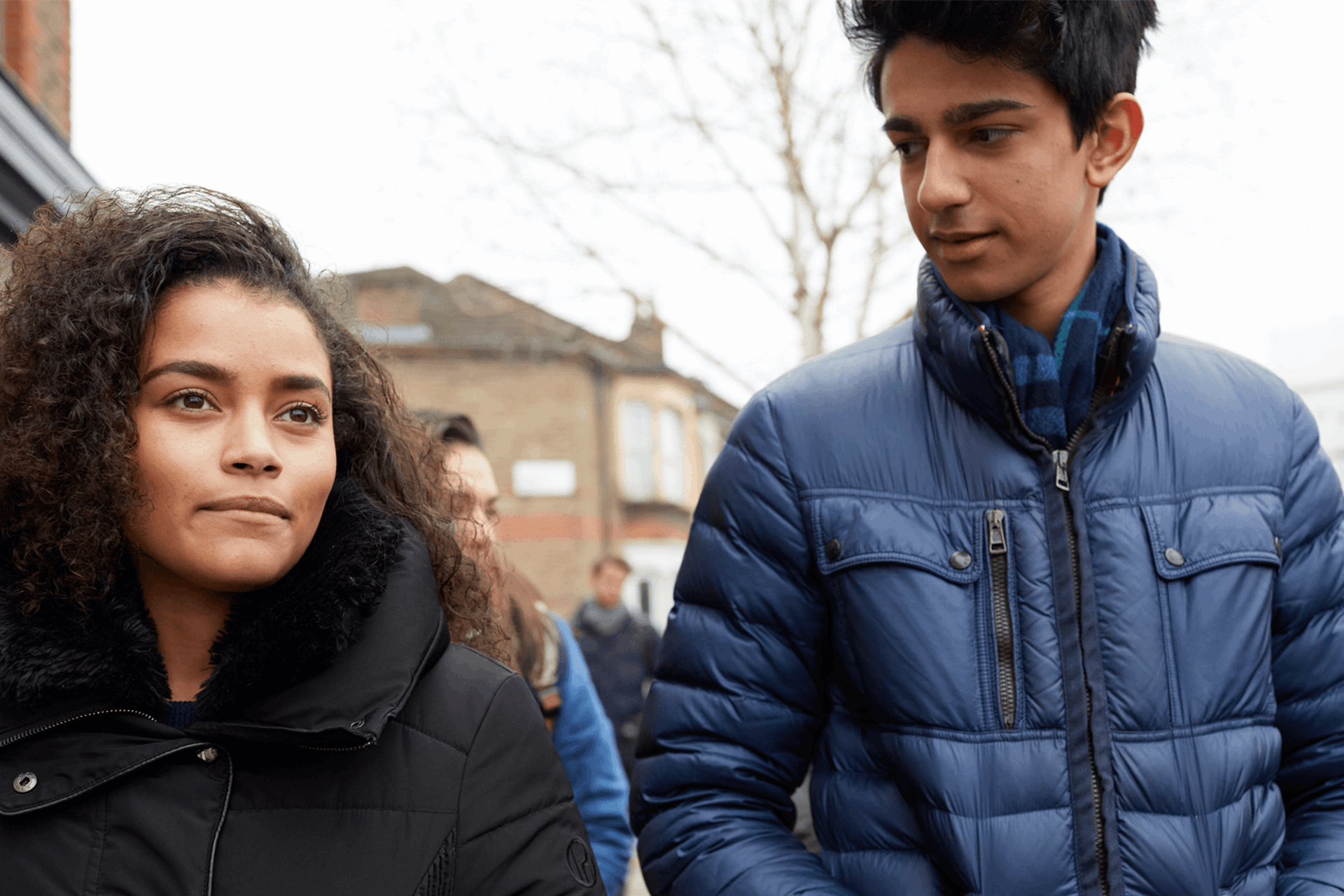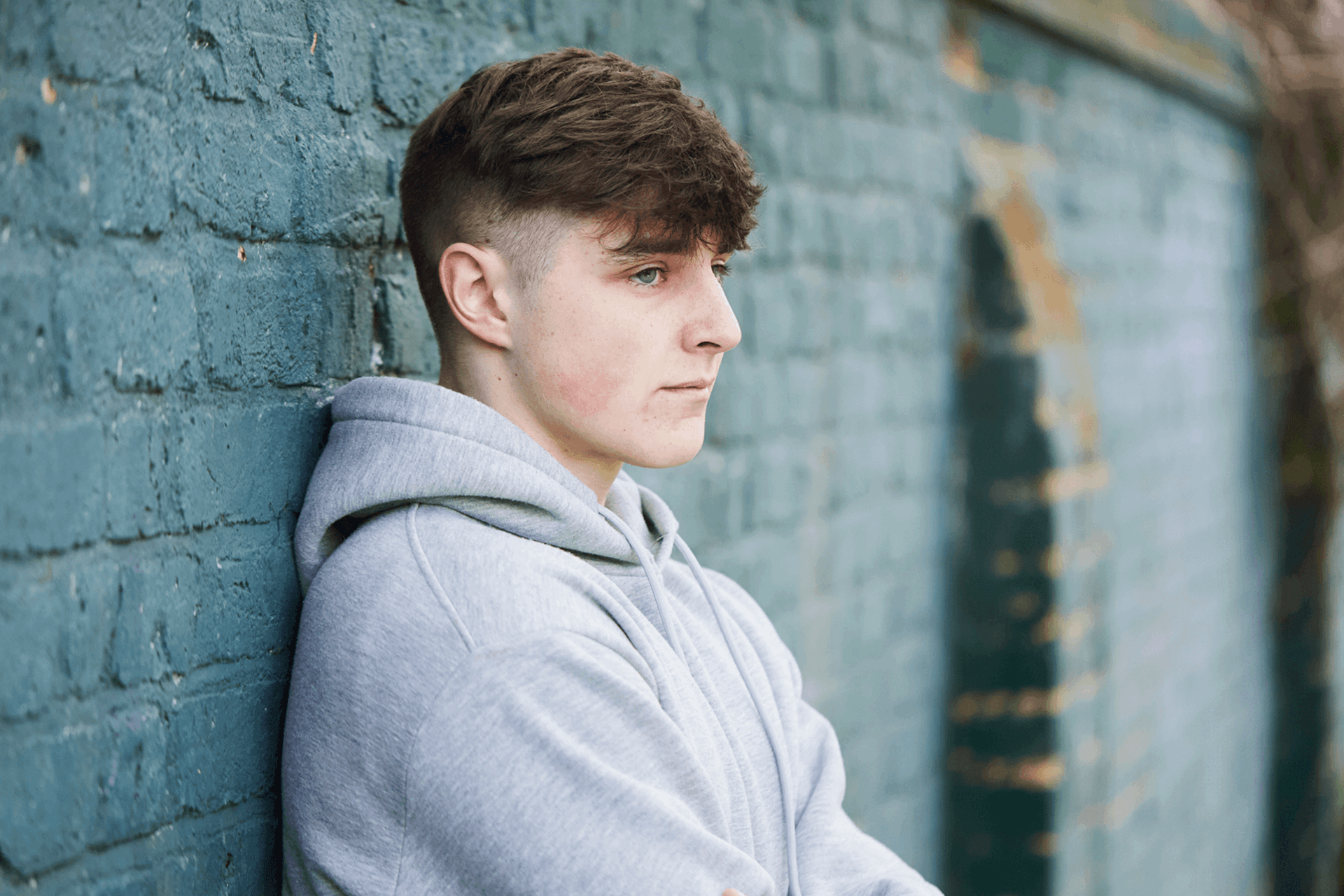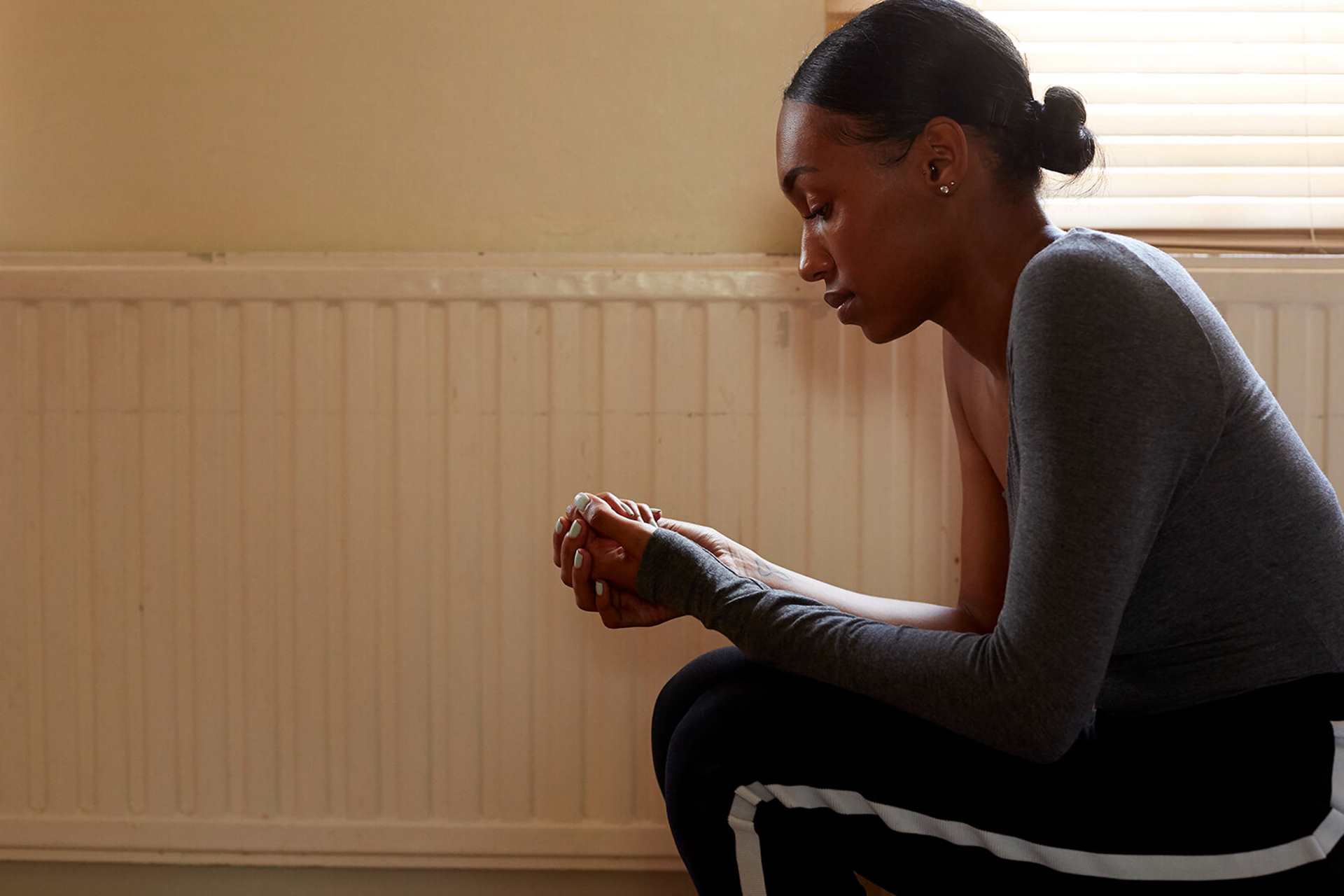Topics mentioned: grief and loss, anger, counselling and therapy
About: It takes time to work through grief and we all experience it differently. Ffion shares her experience of loss, how she manages grief triggers, and how to support a grieving friend.
I’ve lost a lot of people in my life from close friends to a loved pet. Each loss was very different for me and at times very challenging. It’s important to remember that there is no right way to grieve. Grief can be messy and complicated. But reaching out for support can really help.
With each year that passes I become a lot stronger and understand this sadness more.
My own experiences of grief and loss
I lost my first pet hamster when I was 10 years old, and it was something that I was not truly prepared for. It was very upsetting to wake up one day and not have her there to talk to or confide in.
She was a very special friend to me growing up. When I had no one else, she was there. I remember feeling very angry that she was gone, but my family were a great source of support.
Over time this pain got a lot easier. While I still think of her sometimes, it is a lot less painful and I find myself remembering the good memories now.
Losing a close friend at the age of 15 was very difficult to cope with. She was a great friend and used to make me laugh in school every day. I never thought I would have to say goodbye to her at such a young age. I thought we had our whole lives ahead of us together.
The anger, sadness, and guilt I felt after she died felt unbearable at times.
This was sadly not the case, but it made me cherish the time I spent with her even if it wasn’t as long as I would’ve liked. The anger, sadness, and guilt I felt after she died felt unbearable at times.
One way that me and my friends supported each other through this grief was by having our own memorial for her. We planted her favourite tree in a local field, and we tied little ribbons with our favourite memories to the tree.
We were able to tell her all the things we never got to when she was still here. Talking about her allowed us to share these special moments and keep her memory alive.
I have since spoken about her a lot in counselling as this loss is still something that is painful for me. But with each year that passes I become a lot stronger and understand this sadness more.
Turning your pain into something creative helped me channel the anger and pain I was feeling.
How I manage grief triggers
Seeing news articles and media posts about growing death figures during the Covid-19 pandemic was something I really struggled with. Seeing how much pain families were in, and how many families were unable to mourn loved ones by holding a funeral or memorial, was very difficult to witness.
Hearing the stories of how people were never able to say goodbye really impacted the grief that I was struggling with. The main thing I did when the news articles reminded me of loved ones was to switch my phone off and stop reading articles that upset me.
I took a lot of time away from my screen during the pandemic as it was very upsetting to keep getting reminded of the increasing death rates. I started journalling and writing poems to help me cope with this grief and loss. Turning my pain into something creative helped me channel the anger and pain I was feeling.
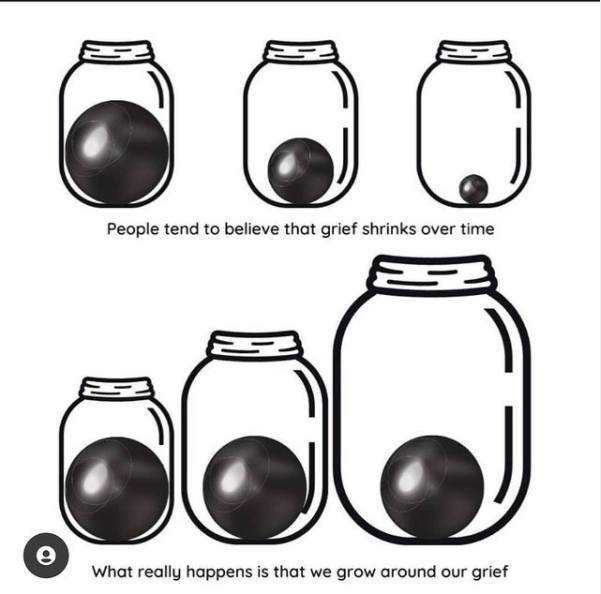
Illustration to show that we grow around our grief. There are three jars of the same size on the first row. Each jar contains a ball which gets smaller in size from left to right. Below are three more jars that get bigger from left to right, but the balls stay the same size.
How to support a grieving friend
It can be very difficult to support a grieving friend when you feel like you have to say the right thing. The best advice I can give is:
- to sit with them and listen to their stories of their loved ones.
- to help them take their mind off the grief and pain.
- a good shopping trip or going to the cinema can be the perfect way to spend time together and distract yourselves.
The Mind website has some great tips for supporting a friend who is dealing with grief.
Grief can be messy and complicated. But reaching out for support can really help.
If you need help, please reach out for support
If you or a close friend is struggling to come to terms with a death, are finding daily life hard, or think things will not ever improve, then it might help to talk to someone.
You can talk to a friend, family members, a teacher or someone else that you trust. You can also talk to your GP about counselling and other professional support services.
Grief can make you feel a range of emotions. You may feel shocked, panicked, sad, depressed, angry, anxious, fearful, guilty, relieved, numb, concerned about your own or other people’s health, or you may feel abandoned.
It’s important to remember that however you are feeling, your feelings are valid, and you are not alone.
More information and advice about grief
Where to get help
-
Grief Encounter
Supports children and young people through bereavement.
Free webchat service available.
- Opening times:
- 9am - 9pm, Monday - Friday
-
Childline
If you’re under 19 you can confidentially call, chat online or email about any problem big or small.
Sign up for a free Childline locker (real name or email address not needed) to use their free 1-2-1 counsellor chat and email support service.
Can provide a BSL interpreter if you are deaf or hearing-impaired.
Hosts online message boards where you can share your experiences, have fun and get support from other young people in similar situations.
- Opening times:
- 24/7

